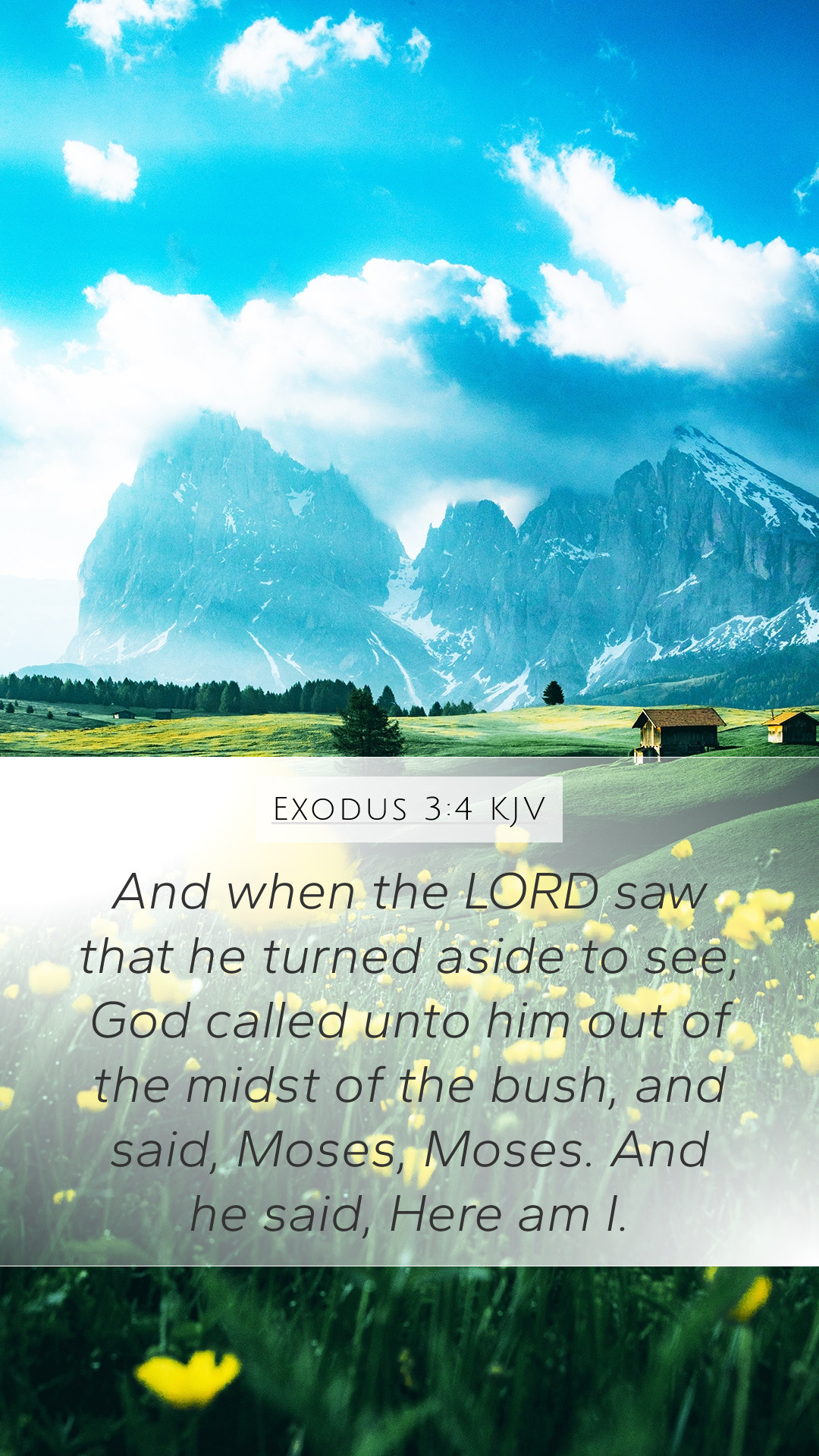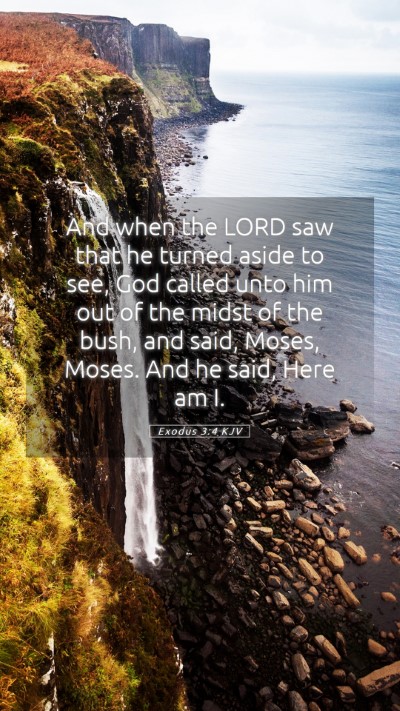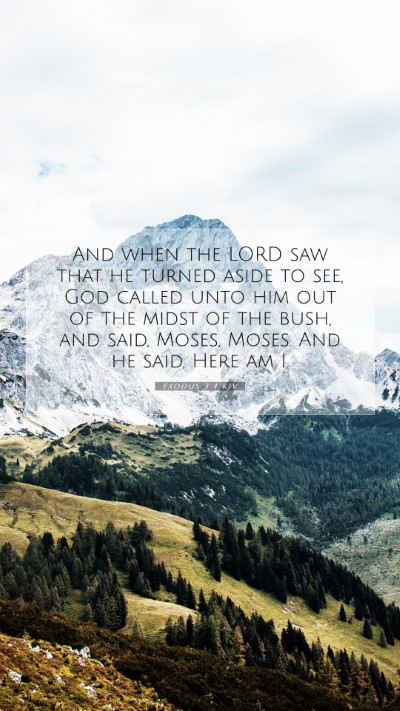Understanding Exodus 3:4
The verse Exodus 3:4 states, "So when the LORD saw that he turned aside to look, God called to him from the midst of the bush and said, 'Moses, Moses!' And he said, 'Here I am.'" This profound narrative reveals significant themes in biblical scripture. Below is a comprehensive analysis of its meaning based on insights from public domain commentaries such as Matthew Henry, Albert Barnes, and Adam Clarke.
Context and Background
Exodus 3 marks a pivotal moment in the life of Moses and the history of Israel. Moses, who had fled Egypt decades earlier after killing an Egyptian, now encounters God in the form of a burning bush. This miraculous event sets the stage for his divine commission to lead the Israelites out of slavery. The context emphasizes Moses' initial reluctance and the significance of God's call.
Verse Interpretation
- Moses' Attention: The phrase "when the LORD saw that he turned aside to look" illustrates that God observes when individuals show curiosity and a willingness to respond to His call. This highlights the importance of being attentive to divine moments in our lives.
- Divine Call: God's calling of Moses by name emphasizes the personal nature of God’s relationship with His servants. The repetition of his name signifies urgency and the importance of Moses' mission.
- Moses' Response: Moses’ response, "Here I am," reflects his readiness to engage with God. This phrase is often used in the Bible to express willingness and availability to fulfill God’s will.
Theological Insights
This verse encapsulates several key theological concepts:
- Calling: The notion of divine calling is central. God calls His people for specific purposes, just as He did with Moses.
- Presence of God: The burning bush signifies God's holy presence. It illustrates how God can work through ordinary things to reveal His purpose.
- Response to God: The passage teaches believers about the significance of responding to God's call in their lives. The readiness to be used by God is essential in the Christian faith.
Key Themes
Several prominent themes emerge from this scripture:
- God’s Sovereignty: The call of Moses demonstrates God's control over history and destiny. He orchestrates events for His glory.
- Transformation: This moment marks a transformation in Moses' life from a shepherd to a leader of a nation.
- God’s Holiness: The burning bush symbolizes the holy nature of God and sets a precedent for how humans should approach the divine.
Applications for Today
Modern readers can draw several lessons from Exodus 3:4:
- Awareness of God’s Work: Just as Moses turned aside to look, believers are encouraged to be observant of God's work in their lives and surroundings.
- Being Open to Divine Guidance: Individuals should be responsive to God's calling, demonstrating a willingness to follow His direction.
- Embracing Transformation: Just as Moses underwent a significant life change, every believer can expect to be transformed through their relationship with God.
Cross References
Exodus 3:4 can be understood more deeply through several related scriptures:
- Genesis 12:1-3: God’s call to Abraham parallels Moses' call, showcasing God's plans for His chosen people.
- Isaiah 6:8: Isaiah’s response to God’s call mirrors that of Moses, highlighting the common theme of divine appointment.
- Acts 7:30-36: Stephen recounts Moses' calling, providing historical perspective and validating his mission.
Commentary Overview
Matthew Henry emphasizes the significance of God's call and the careful attention Moses gives to the burning bush. He notes that God looks for genuine interest and readiness to follow His path.
Albert Barnes highlights that God's call is personal and invites an intimate relationship, demonstrating His desire for humans to engage with Him deeply.
Adam Clarke discusses the symbolism of the burning bush, interpreting it as a representation of God’s holiness and the unusual ways He communicates with humanity.
Conclusion
Exodus 3:4 encapsulates vital principles regarding divine calling, holy presence, and readiness to respond. This verse serves as an invitation for every believer to seek understanding and engage in an active relationship with God. Studying such passages enriches our bible verse meanings, deepens bible verse interpretations, and enhances our bible study insights.


